
Expanding or updating coverage with Medicaid may lead to positive health outcomes among patients with non–small cell lung cancer following surgery, according to Leticia Nogueira, PhD, MPH.

Your AI-Trained Oncology Knowledge Connection!


Expanding or updating coverage with Medicaid may lead to positive health outcomes among patients with non–small cell lung cancer following surgery, according to Leticia Nogueira, PhD, MPH.
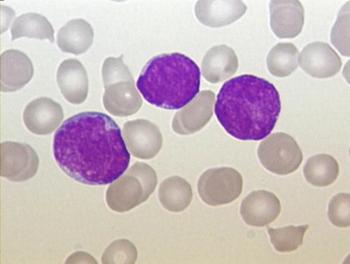
The FDA sets a Prescription Drug User Fee Action Date of November 16, 2024 for obe-cel as a treatment for those with relapsed/refractory B-cell acute lymphoblastic leukemia.

Investigators note that early interventions such as nutritional support and prehabilitation require further investigation to increase both the quality of life and overall survival for patients with esophageal cancer.

Treatment with toripalimab does not yield the same vascular toxicity seen with pembrolizumab in patients with advanced or metastatic nasopharyngeal carcinoma, according to Barbara Burtness, MD.

Adjuvant chemotherapy does not yield an improvement in ctDNA clearance compared with observation among patients with stage II colon cancer in the phase 2/3 COBRA trial.

Cancer incidence appears to have increased from 2015 to 2019 across several disease types, including breast, pancreatic, and uterine cancers.

PTX-252 incorporates a novel molecular entity designed to enhance how cancer cells respond to chemotherapy.

Risk-reducing total gastrectomy is associated with short-term and long-term physical and emotional AEs in patients with pathogenic or likely pathogenic germline CDH1 P/LP variants.

The FDA grants clearance to an oral immobilization stent designed to redirect radiation to the target tumor area for patients with head and neck cancer.

Treating patients with NSCLC with stereotactic ablative radiotherapy and chemotherapy reduces toxicity, according to a study conducted by UCLA.

Findings from the phase 1b/3 IMscin001 study support the European Commission’s approval of subcutaneous atezolizumab as a treatment for lung cancer and other disease types.

The FDA approval of pembrolizumab plus chemoradiation benefits patients with stage III to IVA cervical cancer based on findings from the KEYNOTE-A18 trial, according to Jyoti S. Mayadev, MD.
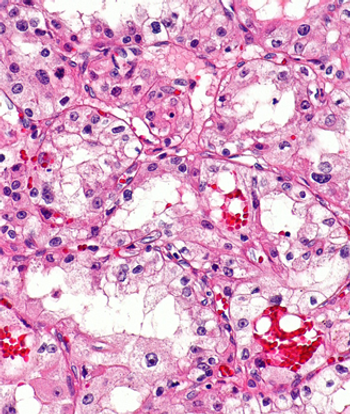
Disease-free survival benefits with chemotherapy appears to be more prominent in patients with colorectal cancer who are minimal residual disease–positive compared with those minimal residual disease–negative disease.

Neoadjuvant botensilimab plus balstilimab appears to be safe and effective in patients with colorectal cancer regardless of mismatch repair status in the phase 2 NEST-1 trial.

Real-world data suggest a role for noncytotoxic chemotherapy treatments such as EGFR inhibitors beyond the frontline setting for patients with metastatic colorectal cancer.
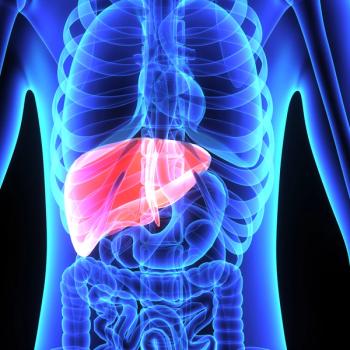
Duration of response results with pembrolizumab plus lenvatinib in advanced hepatocellular carcinoma appear to be ‘promising’ in the phase 3 LEAP-002 trial.

Results from the phase 3 CheckMate-8HW trial highlight that the safety of frontline nivolumab plus ipilimumab in microsatellite instability–high or mismatch repair deficient is comparable with prior reports.
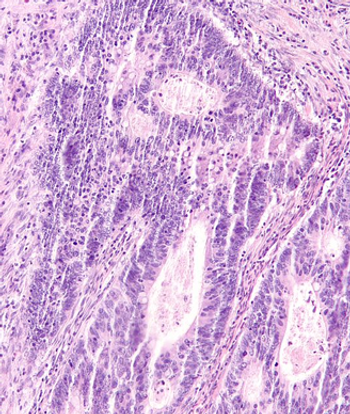
Real-world data may elucidate the characteristics and factors that influence long-term remission with regorafenib among patients with metastatic colorectal cancer.

Data from the phase 3 NETTER-2 trial support the frontline use of Lutetium Lu 77 dotatate well-differentiated gastroenteropancreatic neuroendocrine tumors.

Data from the phase 2 NAVIGATE trial support the wider adoption of next-generation sequencing panels including NTRK gene fusions in the treatment of those with gastrointestinal cancers.
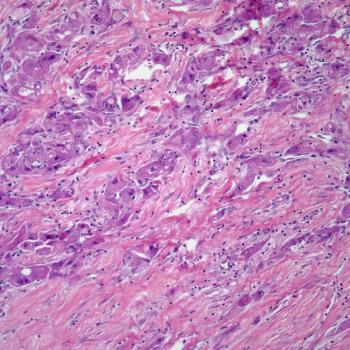
Durvalumab plus bevacizumab and TACE may be a new standard of care in unresectable hepatocellular carcinoma eligible for embolization, according to Riccardo Lencioni, MD.
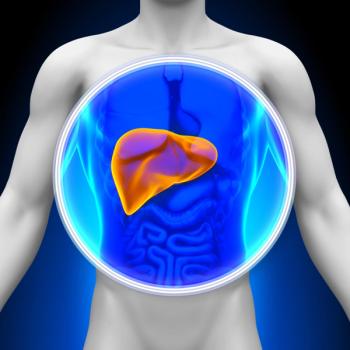
Patients with hepatocellular carcinoma and Child-Pugh-B liver function appear to have worse overall survival following treatment with regorafenib in the REFINE trial.
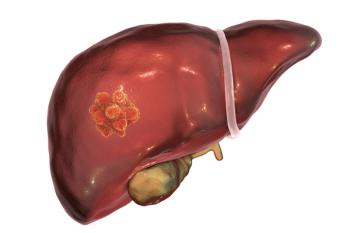
Treatment-emergent adverse effects following therapy with fostrox plus lenvatinib among those with hepatocellular carcinoma appear to be manageable in a phase 1a/2a study.

Investigators observe a benefit with durvalumab plus neoadjuvant chemotherapy among subgroups of patients regardless of microsatellite instability status in the phase 3 MATTERHORN trial.

Findings from the phase 3 FRESCO-2 trial support fruquintinib’s potential to provide an improved survival benefit and quality of life for those with previously treated metastatic colorectal cancer.

The DeFianCe trial is using DKN-01 plus bevacizumab and chemotherapy to determine if a clinical benefit would occur in patients with microsatellite stable colorectal adenocarcinoma.

Data from the phase 3 SKYSCRAPER-08 trial may support tiragolumab plus atezolizumab and chemotherapy as an alternative frontline treatment option for those with locally advanced or metastatic esophageal squamous cell carcinoma.

Neoadjuvant camrelizumab plus chemotherapy may hold promise as a standard of care in locally advanced esophageal squamous cell carcinoma, according to Yin Li, MD.

Combining ASKB589 with capecitabine, capecitabine, and sintilimab leads to no treatment discontinuation due to adverse effects among patients with gastric or gastroesophageal junction cancer in a phase 1/2 trial.

Patients with metastatic urothelial carcinoma who are susceptible to FGFR3 gene alterations may now receive erdafitinib, according to the FDA.